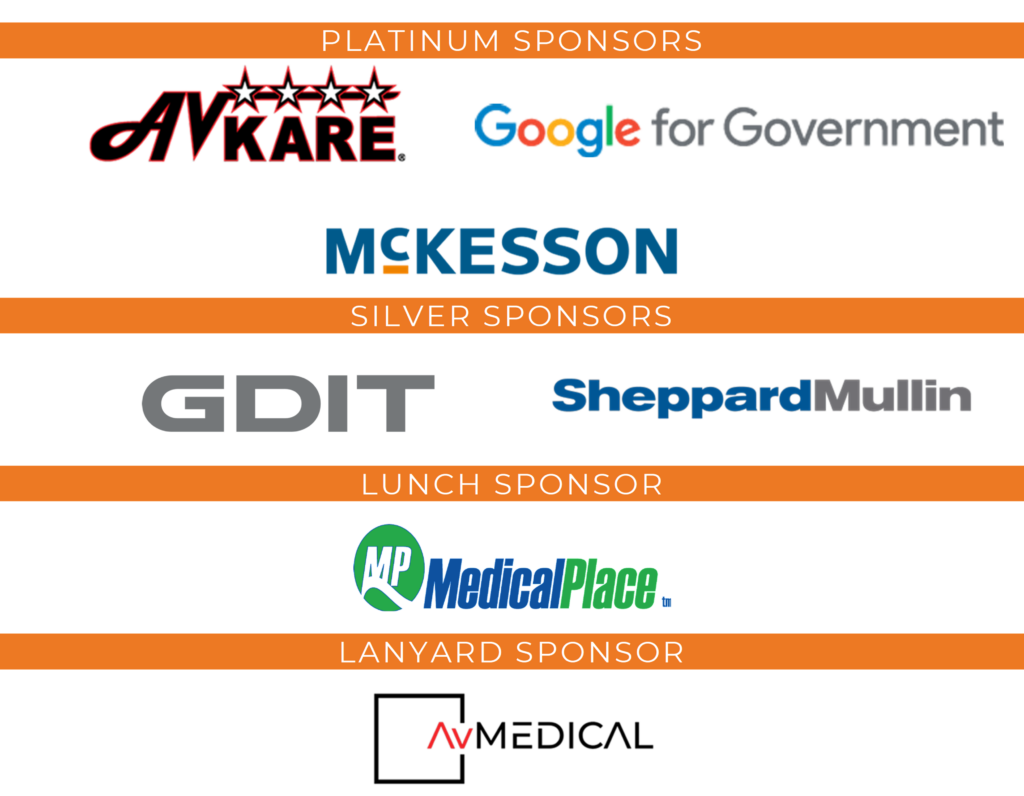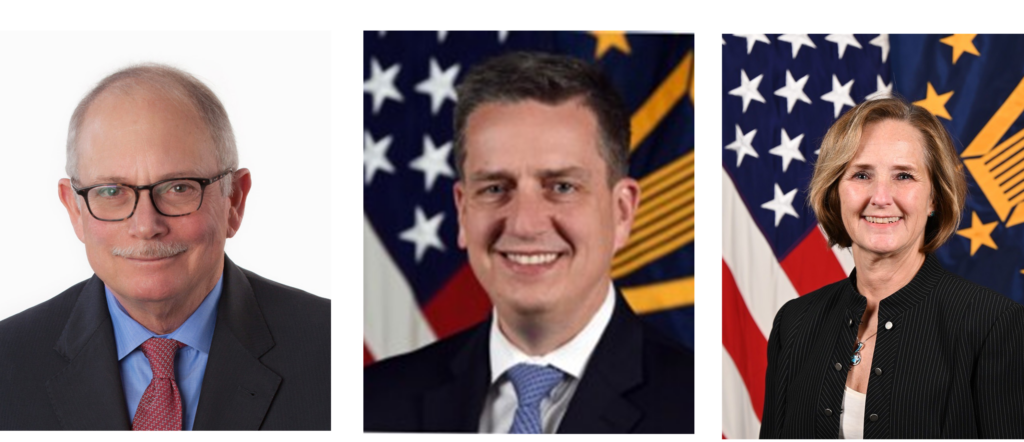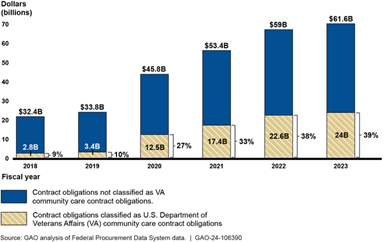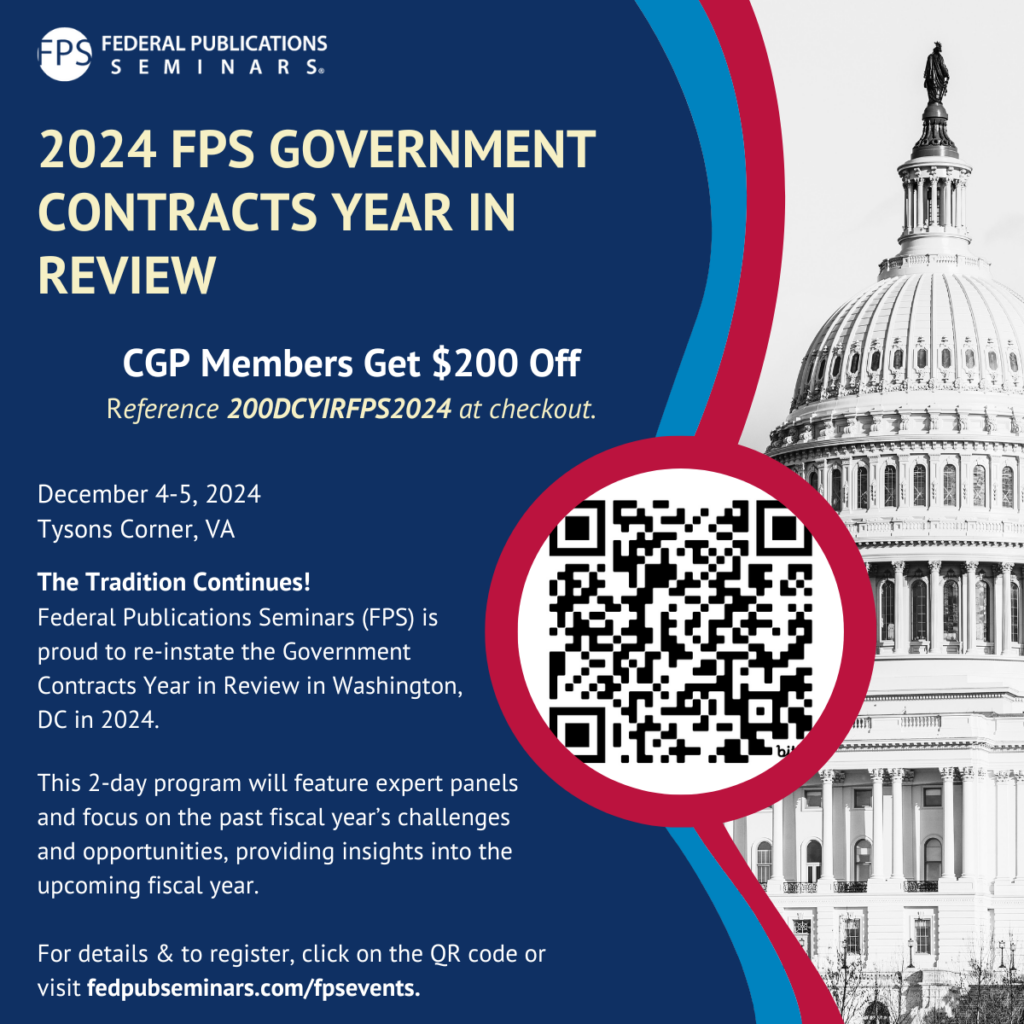GSA Moves Forward with a New EPA, Consistency is the Next Opportunity
On August 5, 2024, the General Services Administration (GSA) took a step forward by publishing a final rule to “standardize and simplify the Multiple Award Schedule (MAS) clauses for economic price adjustments.” The final rule consolidated procedures spread across four MAS Economic Price Adjustment (EPA) clauses into a single, more reasonable clause. This step forward embodies lessons learned from the Covid-19 pandemic and the unprecedented inflation which followed. The Coalition for Government Procurement (CGP) commends GSA for promulgating the EPA rule. However, implementation of the final rule will be heavily influenced by opaque trainings and internal policy memos. This lack of transparency echoes FAS Policy and Procedure (PAP) 2021-05 , threatening the uniformity, accuracy, and fairness of GSA procedures.
EPAs are mechanisms built into contracts to increase or decrease stated contract prices of goods or services, generally contingent on market conditions. Within the MAS program, EPA’s have long played a key role ensuring contractors receive fair and reasonable compensation. The GSAR, as currently written, limits when, how often, and by what percentages prices can be adjusted. These limits exist to ensure contractors do not abuse their EPA request privileges.
Major issues with GSA’s implementation of EPAs on MAS were first flagged in 2021 as U.S. inflation spiked to levels unseen in over a decade. Rapidly rising input prices paired with massive workforce disruptions squeezed margins. Contractors rapidly found that their MAS offerings were no longer economically feasible and began removing important goods and services from their contracts. To alleviate the strain on industry and contracting officers GSA published Acquisition Letter MV-22-02 on March 17, 2022. This letter temporarily removed limits regarding how often and how many times a contractor could request EPA increases. It also lowered the approval threshold for EPA increase requests and allowed for the removal and re-addition of contract items at higher, renegotiated prices. A supplement made all EPA requests, including those above the EPA ceiling percentage, approvable by the assigned contracting officer. Three further supplements have extended these policies until December 31, 2024. These actions gave GSA the time it needed to complete the rulemaking process.
GSA published its EPA proposed rule, GSAR Case 2020-G510, Federal Supply Schedule Economic Price Adjustment, on November 16, 2023. This proposed rule adopted the changes made by Acquisition Letter MV-22-02. The Coalition strongly supported the proposed rule and commended GSA’s initiative. The Coalition saw a further opportunity to improve the EPA process within this new, single clause framework. We called for language clarifying the necessity of market research, using market indexes, and identifying time limits for EPA reviews and negotiations. These suggestions arose from member concerns regarding differences across contracting officer implementation of Acquisition Letter MV-22-02. Over the multi-year “trial period” provided by the Acquisition Letters, member companies observed significant discrepancies around the levels of market research requested and the time taken to complete EPAs. In many cases, requests validated by commercial price lists or market indicators were re-validated utilizing market research. These discrepancies delayed EPA adjustments to MAS prices while introducing unnecessary burdens for both GSA and industry. Furthermore, divergences between EPA approval timelines unfairly impacted the MAS suppliers who faced longer wait times to receive pricing relief.
The Final Rule only included minor formatting changes. GSA did not include our recommendations in the Final Rule. In the Analysis of Public Comments, GSA stated that it “will consider their [The Coalition’s] recommendations within the update of Schedule EPA Guidance.” But the problem with guidance, as opposed to rulemaking, is that it is done internally without public comment or input from the stakeholders in industry subject to the guidance. Development of such guidance is limited to input solely from internal stakeholders even where it imposes new processes, data requests, and, ultimately, costs on private firms.
As we have explained with respect to GSA’s internal guidance on pricing, the FAS Policy and Procedure (PAP) 2021-05 authorized contracting officers to utilize varying pricing methods within the MAS program. Due to the nonpublic nature of the pricing guidance, companies went into MAS negotiations without a proper understanding of the negotiation process or how products and services would be ultimately priced based on the whims of a particular contracting officer. These unknown pricing methodologies discouraged potential new entrants to the MAS program, wasted the resources of industry and government, and led to expensive uncertainties for companies in the MAS program. While training and internal guidance are valuable tools, the rules for the EPA negotiation process need to be consistent and transparent to industry. Transparency in the rulemaking process ensures companies come prepared, limits inequity across participants, and encourages a culture of healthy partnership between government and industry.
Announcing the 2024 Fall Training Conference: “The 2025 Federal Market: What’s Next?“
The Coalition for Government Procurement is pleased to announce that registration is officially open for the 2024 Fall Training Conference on November 20-21 at the Fairview Park Marriott in Falls Church, VA!
The theme of this year’s two-day conference will be “The 2025 Federal Market: What’s Next?” and will explore the future of the Federal procurement system after the Presidential election. Attendees will gain insights into policy shifts, the budget outlook, and the overall procurement state of play in 2025 and beyond. Key executives and officials from Federal agencies will be in attendance to provide the latest updates and discuss “what’s next” in terms of government policies, programs, and initiatives.

- November 20: The focus of the first day will be on governmentwide issues, featuring guest speakers from the General Services Administration (GSA), the Department of Defense (DoD), the National Aeronautics and Space Administration (NASA), and more. We are excited to announce that Former Congressman Tom Davis is confirmed to deliver the opening Keynote Address, “What Happened, Where Are We, and Where Are We Going?” where he will provide his analysis on the election and its impacts on the Federal market.
- November 21: Discussions will explore healthcare-specific challenges, with a focus on what’s ahead for procurement in this crucial sector. Sessions include guest speakers from the Department of Veterans Affairs (VA), the Department of Human and Health Services (HHS), the Defense Health Agency (DHA), and more.
This year, we are excited to introduce a new conference app that will allow attendees to communicate with each other, set personalized agendas, view sponsor information, provide feedback on sessions, and more. We believe this app will enhance your conference experience and help you make the most of the event!
This conference presents a valuable opportunity for professionals in the Federal procurement community to stay ahead of the curve and prepare for changes on the horizon. We encourage you to register now to secure your spot.
To register for the Fall Training Conference, click here. Stay tuned for the release of the official draft agenda for more details, including Keynote speakers, panel discussions, and a variety of breakout sessions!
Book your group rate at the Fairview Park Marriott for the Fall Conference here.
We look forward to seeing you in November!
Join Our Sponsor Lineup for the 2024 Fall Training Conference!
The Coalition for Government Procurement is pleased to announce that multiple sponsorship packages are available for the 2024 Fall Training Conference – 2025 Market Outlook: What’s Next? As always, the Fall Training Conference will serve as a unique opportunity to engage with Federal procurement leaders and connect with industry colleagues.
You will see in the Sponsorship Prospectus that a variety of Premier and Auxiliary packages are available to choose from, each offering many great benefits to further boost your company’s exposure! Secure your sponsorship today and showcase your organization’s brand to the Federal acquisition community.
Click here to download the Sponsorship Prospectus.
Elevate Your Company’s Brand with Prime Mobile App Exposure
We are excited to offer an exclusive sponsorship opportunity that puts your company front and center at our upcoming Fall Training Conference. By sponsoring our mobile event app, your company will gain prime exposure to all conference attendees throughout the entire two-day event.
Key Benefits of the Mobile App Sponsorship:
- Prime Home Page Placement: Your company’s name and logo will be prominently displayed on the home page of the conference app, ensuring maximum visibility every time an attendee opens the app.
- Constant Brand Visibility: The app will be the go-to resource for attendees, featuring peer-to-peer messaging and offering essential information like the conference schedule, session topics, speaker bios, and more. Your brand will be seen repeatedly, reinforcing your company’s presence and commitment to the industry.
*Pricing details included in the prospectus. For more information, please contact Heather Tarpley at htarpley@thecgp.org.
Thank you to our current sponsors of the Fall Training Conference!

We look forward to partnering with you to make the Fall Training Conference a resounding success!
Join Us Next Week at the Coalition’s Cyberside Chat
Time still remains to register for the Coalition’s first-ever hybrid Cybersecurity Symposium: The Cyberside Chat™ next week on September 12! As cybersecurity threats continue to grow in sophistication, so do the Federal Government’s regulations and strategies designed to combat them. The Cyberside Chat will provide attendees with practical solutions to meet these evolving cybersecurity demands. Attendees will leave with a better understanding of current and upcoming cybersecurity requirements. We are thrilled to have curated a lineup of experts from various government agencies, including DoD, CISA, GSA, and DOJ, as well as industry to share their insights into the latest cybersecurity programs, policies, and practical solutions.
This symposium is an excellent opportunity for contracts and compliance professionals, Federal account executives, and other professionals to stay informed and ensure their organizations are prepared for current and future cybersecurity requirements from their Federal customers.
To register for the Cyberside Chat, click here. Learn more about the agenda and featured speakers below!
Note: Both in-person and virtual attendance are available.
Agenda
Cyberside Chat Panel

During this panel, DoD cybersecurity executives Stacy Bostjanick, Chief Defense Industrial Base Cybersecurity, Office of the DoD Chief Information Officer and CMMC Director, and Jeff Spinnanger, Director, Information and Acquisition Protection, Office of the Under Secretary of Defense for Intelligence & Security, will discuss the department’s latest trends and programs, such as the Cybersecurity Maturity Model Certification (CMMC) Framework, the protection of Controlled Unclassified Information (CUI), and the importance of securing the Defense Industrial Base (DIB) and networks.
- Moderator: Robert Metzger, Shareholder, Rogers Joseph O’Donnell
- Jeff Spinnanger, Director, Information and Acquisition Protection, Office of the Under Secretary of Defense for Intelligence & Security, DoD
- Stacy Bostjanick, Chief Defense Industrial Base Cybersecurity, Office of the DoD Chief Information Officer and CMMC Director, DoD
The Dynamics of Cybersecurity Procurement Management

Officials from GSA will explore the complexities of cybersecurity procurement and discuss the evolving challenges and strategies in the management and implementation of cybersecurity solutions across organizations. Topics include GSA’s implementation of cyber-related policies, how the Federal Acquisition Service supports agency partners in obtaining best-in-class cybersecurity products and services and meet compliance needs, addressing procurement process challenges, and more.
- Moderator: Omid Ghaffari-Tabrizi, Head of Federal Civilian Policy, Google
- Kevin Funk, Cybersecurity & Technology Senior Advisor, GSA
- Darrick Early, Client Executive, AAS Civilian, GSA
The Black, White, and Grey of Cybersecurity Compliance

This panel of government and industry experts from industry, CISA, and DoJ, will provide a comprehensive overview of cybersecurity compliance issues and how to address them effectively. During the session, they will explore the complexities of cybersecurity regulations, focusing on the implications for both government and industry. Attendees will gain valuable insights into how to manage compliance risks and develop strategies that align with Federal guidelines while maintaining operational efficiency.
- Townsend Bourne, Partner, Sheppard Mullin
- Sara McLean, Assistant Director, Commercial Litigation Branch, Department of Justice
- Michael Gruden, Counsel, Crowell & Moring
- Leah Schloss, Senior Counsel, Cybersecurity and Infrastructure Security Agency
View the full agenda here.
Networking Opportunities
In addition to gaining knowledge from the panel discussions, The Cyberside Chat offers a valuable networking opportunity. Attendees will have the chance to connect with government officials and industry peers to share best practices, collaborate, and discuss the latest developments in cybersecurity.
Cybersecurity is a critical concern for all organizations, and the inaugural Cyberside Chat™ is designed to equip attendees with the knowledge they need to excel. Don’t miss out on this opportunity to learn from experts, engage with peers, and enhance your understanding of the government’s cybersecurity requirements. Register today to secure your spot at this timely event!
Seeking Member Comments on DFARS CMMC Proposed Rule
On August 15, the Department of Defense (DoD) published a proposed rule titled, “Assessing Contractor Implementation of Cybersecurity Requirements,” to amend the Defense Acquisition Regulations Supplement (DFARS) to incorporate contractual requirements for the Cybersecurity Maturation Model Certification (CMMC) 2.0 program.
The CMMC 2.0 Program requirements apply to all DoD solicitations and contracts pursuant to which a defense contractor or subcontractor will process, store, or transmit Federal Contract Information (FCI) or Controlled Unclassified Information (CUI) on information systems, including those for the acquisition of commercial items (except those for commercially available off-the-shelf (COTS) items) valued at greater than the micropurchase threshold (MPT).
According to the proposed rule, DoD plans to implement a phased rollout of CMMC. DFARS clause 252.204-7021, Contractor Compliance with the CMMC Requirements, will be used in solicitations and contracts that require contractors to have a specific CMMC level, including those using FAR Part 12 for commercial products and commercial services, with the exception of COTS items. In the first three years following publication of the final rule, DoD program offices and requiring activities will determine whether to use clause DFARS 252.204-7021 in contracts and solicitations. In the fourth year following the 3 year “phase-in” period, CMMC will apply to all applicable DoD solicitations and contracts, including those for the acquisition of commercial products and commercial services (except for COTS items), valued at greater than the MPT. The required CMMC level will be identified by DoD in the solicitation or contract. According to the proposed rule, CMMC level certification must be achieved prior to contract award and maintained throughout the duration of the contract. In addition, CMMC requirements must be flowed down to subcontractors at all tiers, “when the subcontractor will process, store, or transmit Federal contract information or CUI.”
Comments on the proposed rule are due on or before October 15, 2024.
The Coalition plans to submit comments. Please submit any feedback on the proposed rule by September 27 to Greg Waldron at gwaldron@thecgp.org.
VA Hospitals Earn High Rankings in Nationwide Surveys
Federal News Network reports that the Department of Veterans Affairs’ (VA) hospitals scored higher than non-VA hospitals on two nationwide surveys tracking quality of care and patient satisfaction. In the latest Hospital Consumer Assessment of Healthcare Providers and Systems (HCAHPS) survey by the Centers for Medicare & Medicaid Services (CMS), nearly 80 percent of VA medical facilities earned four or five-star ratings. By comparison, 40 percent of non-VA hospitals received the same star ratings. This survey measures patient satisfaction after they are discharged through ten metrics such as communication and responsiveness. The VA plans to deliver over 127 million appointments to veterans by fiscal year-end, including both in-house and paid non-VA care.
VA hospitals also outperformed non-VA hospitals in CMS’ Overall Hospital Quality Star Ratings, with over 58 percent of VA hospitals receiving four or five-star ratings. Only 40 percent of non-VA hospitals received these ratings. Using data collected between 2019 and 2023, this survey measures mortality, safety of care, readmission, patient experience, and timely and effective care.
The PACT Act, enacted in August 2022, has increased VA healthcare enrollment by about 33 percent, with 740,000 veterans joining since its passage. Last year, the Veterans Health Administration hired over 61,000 employees, far exceeding its hiring goals and growing the agency total to over 400,000 for the first time in history. However, due to these increases, the VA currently faces financial challenges and has requested an additional $12 billion from Congress to address the budget shortfall through the end of this fiscal year (FY) and FY25. In addition, the department is planning to reduce its workforce by 10,000 positions through attrition.
DoD to Streamline Joint Warfighting Cloud Contract and Add More Providers
The Department of Defense (DoD) is evaluating streamlining contracting processes and adding additional cloud service providers to its Joint Warfighting Cloud Capability (JWCC) contract, reports Federal New Network. JWCC recently surpassed $1 billion in total value, with over 65 task orders awarded. If DoD exercises all its options, the contract could be worth up to $9 billion in 10 years.
While there is not yet an established timeline, DoD is currently identifying additional requirements to include in the next iteration of JWCC. According to Defense Information Systems Agency Director Lt. Gen. Robert Skinner, the next iteration will include streamlined cloud capability, greater diversity in cloud service providers, and potentially “an option of not having task orders competed, that we can have an [indefinite delivery/indefinite quantity] as well as task order competition.”
Federal Agencies to Increase Internet Routing Security
On September 3, the White House Office of the National Cyber Director (ONCD) released a “Roadmap to Enhancing Internet Routing Security” that aims to “address key cybersecurity vulnerabilities associated with the Border Gateway Protocol (BGP).” The BGP is the protocol that underpins the routing of information across networks such as the internet. Malicious agents can use vulnerabilities within the BGP to divert sensitive or valuable information. To address this, the roadmap “advocates for the adoption of Resource Public Key Infrastructure (RPKI) as a mature, ready-to-implement approach to mitigate BGP’s vulnerabilities.” RPKI consists of two key components: Route Origin Authorizations (ROAs) and Route Origin Validation (ROV).
The White House has tasked the Office of Management and Budget, in coordination with the FAR Council and GSA, with requiring “the Federal Government’s contracted service providers to adopt and deploy current commercially-viable internet routing security technologies, and perform ROV filtering on the contracted services connecting to the internet.” ONCD and the Cybersecurity and Infrastructure Security Agency are developing a public-private stakeholder working group to create resources to address the roadmap’s recommendations.
GAO Recommends Improvements to VA Community Care Oversight
On August 21, the Government Accountability Office (GAO) published a report investigating contract oversight procedures within the Department of Veterans Affairs’ (VA) Veterans Community Care Program. The program, which allows eligible veterans to receive health care from community providers rather than VA facilities, has grown significantly over the past five years, representing nearly 40 percent of the VA’s fiscal year 2023 contract obligations.
The VA’s Office of Integrated Veteran Care (IVC) is responsible for oversight of the five contracts the Community Care Program uses to procure services. GAO found that IVC “has not developed a clear and complete set of documentation to guide contract oversight.” Its current guidance, known as desk procedures, is limited and incomplete. GAO also found that IVC eliminated a program manager position that was included in contract oversight plans. Finally, GAO found that the VA lacks a “formal process for documenting lessons learned” regarding contract oversight.

GAO made three recommendations, all of which the VA concurred with:
- Develop a clear and comprehensive set of contract oversight procedures;
- Assess whether all aspects of the program manager role are fulfilled by current processes; and
- Develop a formal “lessons learned” process.
President Proposes Two Percent Federal Pay Raise for 2025
Nextgov reports that last week, the President issued a letter to the Speaker of the House confirming his intent to implement a total pay raise of 2.0 percent for Federal civilian employees next year, consistent with the President’s fiscal year 2025 budget. The across-the-board base pay increase will be 1.7 percent, with locality pay increases averaging 0.3 percent. The pay increase will be effective on January 1, 2025, “or the first day of the first applicable pay period.”
GSA Seeking SAM.gov Usability Testers
GSA’s Integrated Award Environment (IAE) is seeking volunteers who use SAM.gov and related systems to participate in usability testing. Testers will share feedback on their experiences using current features and systems. This feedback will be used to help GSA understand how users respond to its systems, as well as to inform future improvements and releases. Participants will also preview upcoming improvements that are planned for future release and provide input to development teams on these features.
Interested parties can register to participate here.
Legal Corner: The Pentagon’s CMMC Program Takes a Big Step Forward
The Legal Corner provides the procurement community with an opportunity to share insights and comments on relevant legal issues of the day. The comments herein do not necessarily reflect the views of The Coalition for Government Procurement.
Authored by Eric S. Crusius, Holland & Knight
The U.S. Department of Defense (DOD) issued the proposed Defense Federal Acquisition Regulation Supplement (DFARS) rules that will implement the Cybersecurity Maturity Model Certification (CMMC) program. These rules, which will be placed into all DOD contracts, will require all contractors to self-certify or obtain a third-party certification prior to beginning work on any DOD contracts. The kind of certification necessary will be dependent on the level of security necessary for the information generated or stored under the contract. Comments on the proposed rule are due on Oct. 15, 2024.
There are two sets of rules that will be utilized when the CMMC program is fully formed. The first, issued under Title 32 of the Code of Federal Regulations (CFR), establishes the CMMC program. These were initially proposed on Dec. 26, 2023, and the U.S. Office of Management and Budget (OMB) is reviewing the final regulations, with release expected before the end of the year. The second set of rules, which are the subject of this blog, are issued under Title 48 and will be placed in DOD contracts and refer back to the Title 32 rules.
If adopted as proposed, these rules will require contractors to have a current CMMC assessment at the time of award and maintain that assessment for the duration of the contract. Contractors without a required assessment will not be awarded a contract, and contractors who fail to maintain an assessment during the contract period will be subject to termination.
Further, to better track compliance, each contractor-assessed system will be tagged with a DOD unique identifier (UID), and if any of the systems supporting the performance of the contract change, the contractor is responsible for updating the UID with the contracting officer. The proposed rules offer important insights into the CMMC program:
Subcontractor Compliance. DOD notes that prime and higher-tiered contractors will not have access to DOD databases to verify that companies have the certification level claimed. It is DOD’s position that that is an issue for the parties to work out themselves. Prime contractors or higher-tiered subcontractors should address this issue in subcontract agreements.
Additional Incident Notifications. In the proposed regulation, DOD states that contractors are required to “[n]otify the Contracting Officer within 72 hours when there are any lapses in information security …” It is unclear what a “lapse” in information security is versus incident notifications required under DFARS 252.204-7012. This, of course, adds an additional notification requirement for contractors with Controlled Unclassified Information (CUI) and adds a new one for contractors that have Federal Contract Information (FCI) (which maps to a CMMC Level 1 self-assessment).
Assessment Change Notifications. Contractors will also have to notify the contracting officer within 72 hours if there is a change in CMMC certificate status or assessment level.
International Companies and Systems. DOD makes clear that companies or systems outside the U.S. will be held to the same standards as their U.S.-based counterparts. There are additional challenges, including host nation restrictions on foreign review of information systems and finding a certified third-party assessment organization (C3PAO) capable of conducting a review outside the U.S.
Implementation Timing. DOD notes a phased-in approach, but it is unknown at what point DOD will determine which programs will be part of the initial rollout (or if there will be a coordinated rollout across specific contracts). Because of that, contractors should prepare for the possibility that new DOD contracts will require a CMMC assessment in the first half of 2025.
False Claims. These regulations continue to raise the specter of False Claims Act liability. Information systems will be tied to information-specific contracts, and affirmations will be required annually. Those affirmations will have to attest that no material changes have occurred to the information system. So if a contractor upgrades a system (outside the regular patching process) or merges with another entity, a new assessment will be required in order for the contractor to continue performing, and an affirmation that ignores these changes could open a company up to liability.
Level Determination. Besides the CMMC clause, there is a separate clause where DOD will notify offerors which CMMC level will be required prior to award for each information system that will store/process data as part of performance under the contract. The level determination could raise some pre-award protests tied to DOD’s categorization of the information as CUI versus FCI.
Further, confirming the broad applicability of CMMC, DOD confirmed that these requirements will be applicable to contracts below the Simplified Acquisition Threshold (which currently sits at $250,000). The only exceptions are for contracts solely for the purchase of Commercial Off-the-Shelf items or contracts under the $10,000 micro-purchase threshold.
These proposed rules represent continued affirmation to DOD’s dedication to rolling out CMMC soon. Contractors in the DOD space should not delay in preparing for the rolling out of CMMC in 2025.
Healthcare Spotlight: Annual VA National Acquisition Center (NAC) Meeting, October 24
The Coalition for Government Procurement is pleased to announce that its Annual Meeting with the VA National Acquisition Center (NAC) will be Thursday, October 24 in Northern Virginia. (We are currently identifying a meeting location and will notify members as soon as one is confirmed.)
The Annual VA NAC meeting is one of the most popular events for our Healthcare members. This year’s event will feature VA leadership from the VA Federal Supply Schedules (FSS) program as well as the National Contract Service (NCS). For the first time, we will also hear from acquisition leaders with the Commodity & Services Acquisition Center (CSAS) and the Denver Logistics Center (DLC)! The VA OSDBU has also been invited to participate with a tabletop.
VA speakers include:
- Christopher Parker, Associate Executive Director, Strategic Acquisition Center & Acting Associate Executive Director, National Acquisition Center
- Dan Shearer, VA Federal Supply Schedule (FSS) Director
- Fran DeRosa, VA National Contract Service (NCS) Director
- Andrea Lay, Director, Commodity & Services Acquisition Service (CSAS)
- Kevin Quitmeyer, Director, Denver Logistics Center (DLC)
Annual VA NAC Meeting Agenda
- 7:30 am – 9:00 am: Registration
- 9:00 am – 9:15 am: Introduction Remarks from the VA
- 9:15 am – 10:15 am: VA NAC Directors Panel
- 10:15 am – 11:00 am: Networking
- 11:00 am – 12:00 pm: VA NAC Federal Supply Schedule Panel
- 12:00 pm – 12:30 pm: Final Q&A
For the detailed agenda with all speakers, click here. The program will cover the latest developments for VA FSS, CSAS, DLC, and NCS contracts and public law topics for pharmaceutical members. There will also be time to network with leadership of these contracting programs.
This members-only meeting will be in-person and complimentary. To register, click here. For questions or assistance with registration, please contact Madyson Whiting at MWhiting@thecgp.org.
Accounting Corner: A First Look at the Highly Anticipated Alliant 3 RFP
The Accounting Corner provides the procurement community with an opportunity to share insights and comments on relevant issues of the day. The comments herein do not necessarily reflect the views of The Coalition for Government Procurement.
Authored by Leo Alvarez, Dylan Schreiner, Molly Menoni, and Alyssa Goerke; Baker Tilly
Updated on August 23, 2024: The General Services Administration (GSA) has released the final version of the Alliant 3 solicitation. After two previous drafts had been released and open for questions, the final request for proposal (RFP) was published on June 28, 2024. All proposals must be submitted on Jan. 10, 2025, giving contractors ample time to prepare all supporting documents and proposals for submission.
There were several updates made since the second draft of the RFP was published in December 2023. Below are some of the major changes and key considerations potential offerors should be aware of when preparing their response to the RFP.
*Note: Potential offerors should also review Baker Tilly’s article covering updates from draft RFP 1 to draft RFP 2.
Major changes and key considerations
Contemplated number of awards
In a welcome update, GSA increased the number of awards they intend to make from 60 awards to 76 awards. Language surrounding tied scores has remained the same—in the event of one or more tied scores at the 76th position, each offeror will receive an award. Should a tied score occur above the 76th position, the two offerors will also receive awards.
Scorecard changes
There were some minor changes to the scorecard for the final RFP that resulted in a reduction of the maximum possible points from a previous total of 92,200 to a final total of 89,950 points across the seven (7) volumes. The scoring updates are below:
View from Main Street: SBA’s Proposed Rule
Updates on Timely Topics Impacting the Government Contracting Industry from the Coalition’s Vice President of Acquisition Policy, Ken Dodds
On August 23, 2024, SBA issued a proposed rule addressing multiple small business contracting programs, including HUBZone, 8(a), size, recertification, and mentor protégé joint ventures. 89 FR 68274. Comments are due no later than October 7, 2024. Implementation of some of these proposed policy changes in a final rule will hinge on the election in November.
HUBZone
SBA is proposing to scale back some of the compliance reforms it enacted in 2019. HUBZone employees must work 80 hours a month (instead of 40) and perform legitimate work for the concern. For firms where all employees work remotely, at least 51% of its employees must reside/work in a HUBZone. Firms may count only one employee as a legacy HUBZone employee (an employee that used to live in a HUBZone but no longer does). HUBZone firms must be eligible at time of offer for a HUBZone contract (like other SBA programs) and must recertify HUBZone program eligibility every three years.
8(a)
Unlike other SBA certification programs, SBA’s 8(a) program has a good character requirement because it is a developmental program. SBA is proposing that applicants will not be automatically barred from certification based on possible past criminal activity, and a denial of certification based on a lack of business integrity will be based on conduct that could be grounds for suspension and debarment. Some other clarifications include a non-disadvantaged minority owner’s right of first refusal does not negatively impact a disadvantaged individual’s ability to control the concern; SBA can accept a follow-on sole source contract offered to an incumbent 8(a) concern without considering the equitable geographic distribution of contracts; and non-disadvantaged individuals or concerns in the same line of business can own up to 20 percent of a concern in the development stage of the program and 30 percent of a concern in the transitional stage.
Mentor Protégé Joint Ventures
Essentially agreeing with the Court of Federal Claims decision in Synergy, SBA is proposing that a procuring agency can require a protégé to demonstrate some past performance but not at the same contract dollar value required of other offerors. Addressing situations where a mentor acquires another mentor, SBA is proposing procedures to ensure that the acquiring mentor does not have competing joint ventures on the same multiple award contract.
Limitations on Subcontracting
SBA is proposing to clarify that the ordering agency contracting officer should monitor compliance with the limitations on subcontracting for orders set aside under multi-agency contracts, and leased employees count toward performance requirements (unlike independent contractors).
Recertification
In response to GAO and OHA decisions which allowed firms that had recertified as other than small for a contract to compete for set-aside orders, SBA is proposing to clarify that a firm that recertifies as other than small or no longer qualifying for a socioeconomic designation for a contract as a result of a merger or acquisition, or prior to an option period, is not eligible for set-aside orders, including under the Federal Supply Schedule. In addition, SBA is proposing that a firm that is not small or that does not meet socioeconomic status requirements at the time of recertification for an option period on a long-term multiple award set-aside contract is not eligible to receive the option.
Negative Control
For certification programs based on ownership and control by designated individuals (8(a), SDVO, WOSB), SBA is proposing to clarify that minority owner consent can be required for extraordinary circumstances: adding a new equity stakeholder, dissolution of the company, sale of the company or its assets, merger, bankruptcy, or amending governing documents to remove minority consent for the actions listed above.
Annual Receipts
SBA is proposing that it may look beyond tax forms in calculating size when it does not believe tax forms adequately capture revenue. While SBA must be able to look beyond tax returns that it believes are false, a firm’s financial statements may not necessarily reflect revenue the same way that revenue is reported for tax purposes. If a firm may legally exclude certain revenue for tax purposes, it should not be found to be other than small based on financial statements or other financial reports created for different purposes utilizing different rules. Also, due to a District Court False Claims Act decision, there has been some confusion around the exclusions from revenue in SBA’s regulations. SBA’s rules need to clarify that the exclusions in SBA’s regulations apply after the firm has reported its revenue for tax purposes, utilizing whatever exclusions are legally available for tax purposes. SBA’s exclusion from revenue rule is for size determination purposes and is not intended to limit what a firm can exclude from its revenue for tax purposes.
Off the Shelf: Trends Shaping the Federal IT Market

Tony Celeste, head of Ingram Micro Public Sector LLC and Promark Technology Inc., joined Off the Shelf for a wide-ranging discussion of significant trends shaping the Federal IT market. During the interview, Celeste offers his thoughts on digital transformation and best practices agencies and contractors can leverage towards IT modernization. He also addresses the role of AI and virtual reality in supporting Federal IT mission requirements, including how agencies can effectively leverage these rapidly evolving capabilities in support of mission requirements.
Celeste also shares his observations on the diverge between government unique requirements and the commercial market and what it means for competition, pricing, and innovation. Finally, he discusses opportunities for small businesses and the critical role they play in the Federal market.’
Listen to the full podcast here.
Nominations Now Open for the 2024 Excellence in Partnership Awards!

The Coalition for Government Procurement is excited to announce that nominations are now open for the 2024 Excellence in Partnership (EIP) Awards!
The EIP Awards recognize individuals and organizations in the Federal procurement community who make significant contributions to the acquisition system. The awards recognize individuals and programs from the Department of Defense, civilian agencies, and industry. Throughout the years, the EIP Awards have highlighted a number of outstanding efforts, programs, and initiatives led by procurement professionals who are dedicated to meeting the mission critical needs of agencies and the American people.
2024 EIP Awards categories:
Lifetime Acquisition Excellence Award – Presented to an individual in the contracting community (government or industry) for demonstrating a life-long commitment to advancing “common sense in government procurement.”
Acquisition Excellence Award – Presented to an organization or individual (government or contractor) for outstanding performance over the year in meeting the mission-critical needs of a Federal agency.
Sustainable Excellence Award – Presented to a government agency or contractor that has made outstanding contributions that meet the Federal Government’s sustainability goals.
Advocating for Veterans Award – Presented to an organization or individual (government or contractor) for promoting and executing a successful program or policy that supports veterans.
We strongly encourage you to nominate a deserving colleague or collaborator who has demonstrated their commitment and expertise in the Federal procurement space. The nomination deadline is October 4, 2024.
To submit a nomination, click here.
If you have any questions regarding the EIP Awards or nomination process, please contact our EIP Award team at nominations@thecgp.org.
Part II Briefing on Accredo Specialty Pharmacy, September 17
The Coalition’s Pharmaceutical Committee will host a virtual Part II Briefing on the Accredo Transition on September 17, at 11:00 AM (ET).
As of March 1, all prescriptions for replenishable specialty products are being handled by Accredo. We will be joined by three guest speakers who are experts on the program. They will share the latest program updates and answer any questions you may have.
Guest Speakers:
- Viktoria Reed, Contracting Officer, Defense Health Agency
- Aaron Middlekauf, VP, Government Accounts, DoD Cencora
- Lisa Adams, Senior Director – Military & Veterans Account Management, Express Scripts
Our guest speakers are very interested in what topics and questions you would like them to cover. Please send any questions or topics of interest about Accredo to Gregory Waldron at gwaldron@thecgp.org.
To register, click here. For any assistance with registration, please contact Madyson Whiting at mwhiting@thecgp.org.
Don’t Miss the 2024 FPS Government Contracts Year in Review!

For over four decades, this industry-leading conference has been the essential gathering for government contracting professionals. Join Federal Publications Seminars (FPS) on December 4-5 at The Westin in Tyson’s Corner, Washington, DC, to delve into the most critical legal and compliance issues impacting Federal contracting in 2024. Network with peers, gain insights from top experts, and stay ahead of industry trends. As a Coalition member, enjoy a $200 discount with promo code 200DCYIRFPS2024.
To register, click here.
“Coalition Consults” on VA Contracting Programs
The Coalition is proud to offer our latest new resource for our healthcare members, called Coalition Consults. The first set of consults address key contracting programs at the US Department of Veterans Affairs (VA) for medical/surgical supply and medical device companies. They provide basic information about the product scope of each contract and how companies can pursue these contracts including the appropriate VA contacts. Coalition Consults are currently available for the following VA contracts:
- New! VA Durable Medical Equipment (DME) program
- VA Med-Surg Prime Vendor (MSPV) program
- VA & DoD High Tech Medical Equipment (HTME) program
- VA Medical Device Implant program
- VA Non-Expendable (NX) Program
To access the Coalition Consults, click here. For any questions, please contact Aubrey Woolley at awoolley@thecgp.org.
VA Data for Healthcare Members
To increase the number of valuable tools available for members, the Coalition has compiled several data sets pertaining to VA Medical Centers’ procedures, diagnoses, and product spend. Below is a description of the different VA data reports that the Coalition can provide to healthcare members based on areas of interest to their business:
- Diagnosis data by each VA Medical Center: Members can request a report by providing the relevant International Classification of Diseases (ICD)-10 codes of interest to their business.
- Procedure data by each VA Medical Center: Members can request a report by providing the relevant Current Procedural Terminology (CPT) codes of interest to their business.
- Prosthetic (medical implants, DME) product spend by VA Medical Center: members can request a report by providing the relevant Healthcare Common Procedure Coding System (HCPCS) codes of interest to their business for items managed by VHA Prosthetics.
For any data requests or related questions, please contact Michael Hanafin at mhanafin@thecgp.org.